30 influential LGBTQ+ leaders: Part I
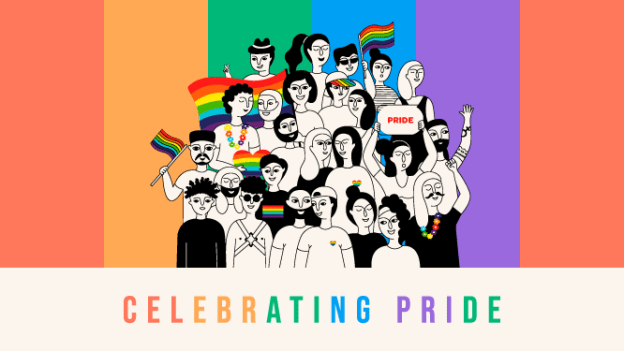
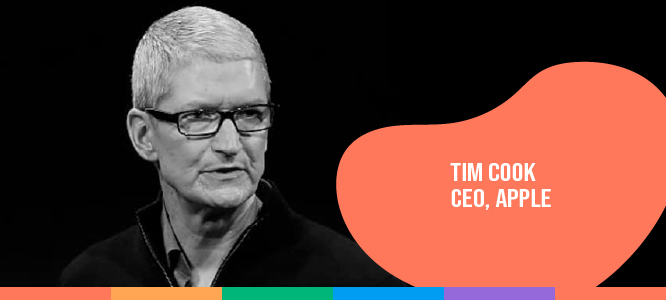
Despite being a notably private person, Tim Cook became the first CEO of a 500 fortune company, coming out as gay in 2014. He revealed his sexual orientation through an open letter published in Bloomberg BusinessWeek. He strongly believes that business leaders need to do their part to make the world a better place. An excerpt from his open letter is as follows: “Part of social progress is understanding that a person is not defined only by one's sexuality, race, or gender.”
“I don’t consider myself an activist, but I realize how much I’ve benefited from the sacrifice of others. So if hearing that the CEO of Apple is gay can help someone struggling to come to terms with who he or she is, or bring comfort to anyone who feels alone, or inspire people to insist on their equality, then it’s worth the trade-off with my privacy.”
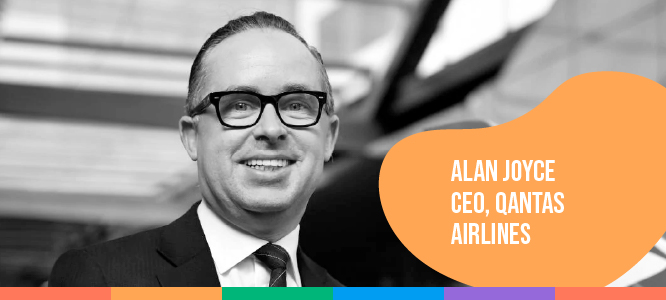
Alan Joyce has been named as one of the world’s most influential business executives. He has always been very open about his orientation and has been in a committed gay relationship for over 20 years now. He supports same-sex marriage and believes that it is critical to make people recognize that they know LGBT people.
Alan likes to frequently talk about equality at the workplace and said, “It has become more important for leaders who are LGBT to be open about their sexuality. I am passionate about it. There should be more people like Apple’s Tim Cook and Paul Zahra, the former CEO of Australia’s David Jones [store chain].”
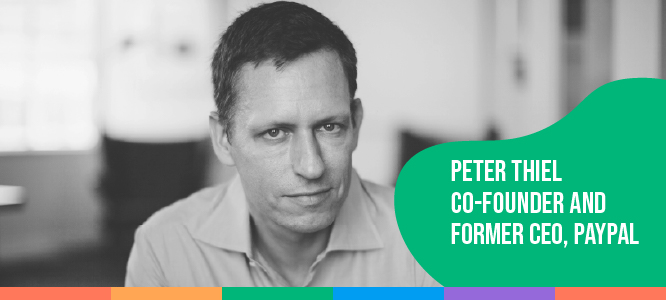
Peter Thiel served as the CEO of PayPal from its inception to its sale to eBay in October 2002. Thiel’s sexuality came out in 2007 when Gawker Media outed him in a blog post. He became the first openly gay speaker at Republican National Convention and delivered a speech on sexuality.
"Of course every American has a unique identity," he said. "I am proud to be gay. I am proud to be a Republican. But most of all I am proud to be an American."
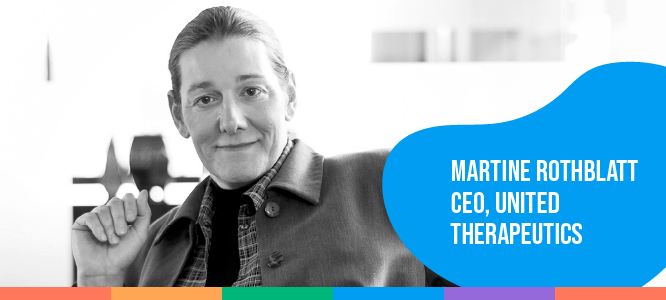
Martine co-founded Sirius XM Satellite Radio in 1990 and 1996 founded United Therapeutics, making her the highest-earning CEO in the biopharmaceutical industry. She came out as a transgender in 1994 and has been vocal about the trans community ever since.
In 2014 in an interview, Martine said, "I took a journey from male to female, so if I hide that, I’m, like just replicating the closet of my past with another closet of the future. That made no sense and that is why I am open.” She has authored a book called “The apartheid of Sex”.
In 2015 in a TED Talk she said, “My thesis in this book is that there are seven billion people in the world, and actually, seven billion unique ways to express one's gender.” She adds, “We know from anthropological science that race is fiction, even though racism is very, very real, and we now know from cultural studies that separate male or female genders are constructed fiction. The reality is a gender fluidity that crosses the entire continuum from male to female.”
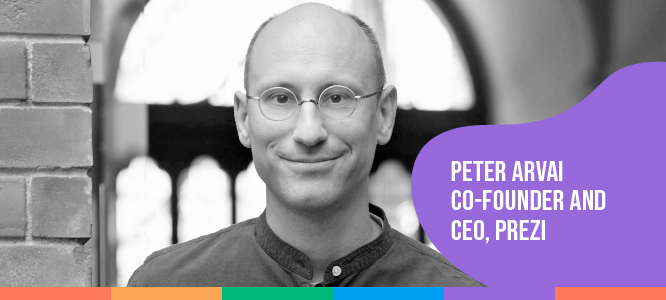
Peter Arvai is the 11th most influential LGBT leader in the world. His goal has always been to create an open environment that fosters diversity. He has co-founded an NGO with Google and espell called ‘We Are Open’ to promote openness at the workplace. Peter regularly talks about his gay background in every onboarding session at his company.
When Prezi was featured on the cover of Forbes, Peter used the opportunity by coming out and sharing his story to start a conversation on this topic that most people seem to avoid. If you want to create a more inclusive workplace, you need to be willing to be vulnerable yourself, he says. “To spark honest discussions about inclusivity and openness, your personal experience of inclusion is a key resource and you need to create a safe environment so people find the courage to have uncomfortable conversations.”
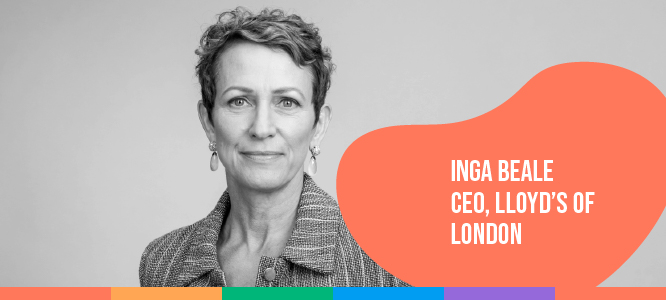
Inga became the first female CEO of Lloyd’s of London in 2013 and in 2017 was named a Dame Commander of the Order of the British Empire for her contribution towards the British economy.
She came out first as a bisexual, in an interview in 2008 and since then has made efforts to bring diversity and inclusion at the forefront in her company. “It’s not about me. It’s about what you do for other people. For me, it’s so important because you need these role models.”
Speaking between meetings at the World Economic Forum in Davos, she says her position at the top of the LGBT table is important for its impact on others: “It’s about giving people confidence,” she says.
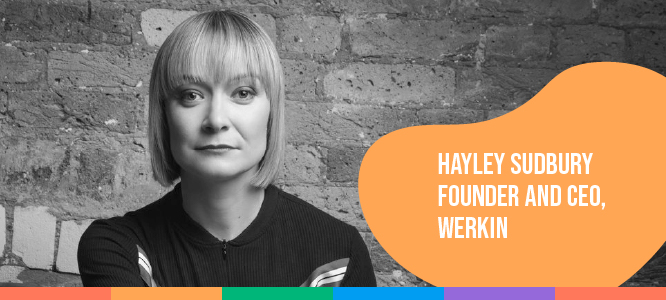
Hayley Sudbury is a rare sight in the world of tech - A woman, CEO, and gay. She is the founder and CEO of a tech company WERKIN and supports LGBT+ rights as well as diversity in the tech industry.
In an interview with Guardian she shared, “It’s hard enough being the only woman in the room, and then to come out as gay? It’s even harder.” But there’s a “different energy” when you have a diverse workplace that includes people of different backgrounds, ethnicities, and genders. “That’s what gets me out of bed in the morning,” she says. She feels that there is a lot more support now than there was 5 years ago and it is comparatively easier to come out. However, “There is still quite a way to go!”.
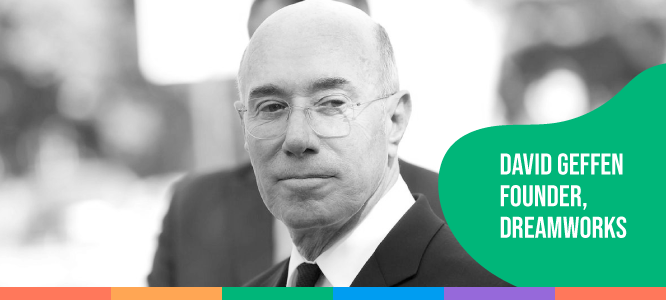
Founder of film studio Dream Works as well as record labels Asylum Records, Geffen Records and DGC Records, David Geffen came out in 1992 at a fund raiser announcing, “As a Gay man, I have come a long way to be here tonight.” He was already among the strongest pillars of the gay rights movement by then.
“If I am going to be a role model, I want to be one that I can be proud of,” Geffen said in an interview back in 1992.
Geffen contributed significantly towards society through the David Geffen Foundation that worked relentlessly towards healthcare, people affected by HIV/AIDS, civil liberties, issues of concern to the Jewish community, and arts. Interestingly, the song ‘Free man in Paris’ by Joni Mitchell is based on Geffen’s time in Paris during a trip they took together along with Canadian musician Robbie Robertson and his wife.
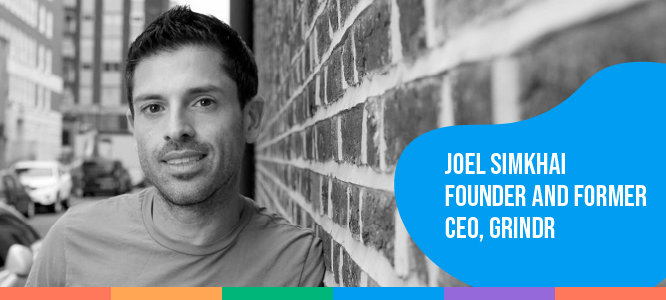
Joel Simkhai founded Grindr, a dating app for men in the LGBTQ+ community in 2009. He says he launched the app with a “selfish desire’ to meet more gay men. Today, Grindr has over 4 million users and has become the world's largest social networking platform for men from the LGBTQ+ community to interact.
In an interview Joel shared, “ As a kid I was teased, teased for being feminine, I guess for being gay. So a lot of my early life was just in denial about it with myself and others. But by 16 and as I started getting older, I realized that I like guys”. “My story is the story of every gay man. We are seen as a minority in some ways and the services out there weren’t that great. I am an introvert so I don’t really do well at being who I am right away but online seemed like my comfort zone”. It all begins with meeting someone, he adds.
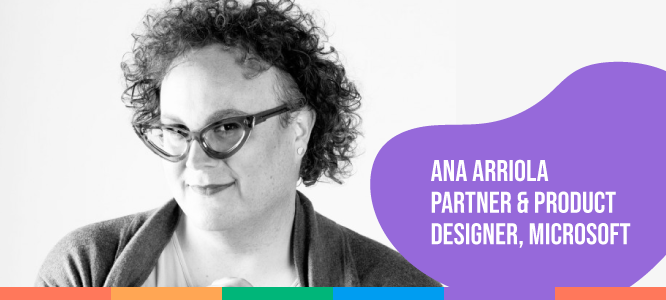
Ana Arriola works as the General Manager and Partner for Microsoft. Born male, when she was six, she knew for the first time in her life that she was female. She pushed that forward. Ana says, “I learned about how I can apply that uniqueness I have as a person into entrepreneurship. In junior high, I was running a business out of my locker.”
Through all her high-flying professional and personal experiences, Ana is still mindful to apply all her learnings into her three core principles: human, simple, and authentic. “I take that approach,” she says. “I question everything I do, and I’m not influenced by anyone.” And she suggests we all do the same. “Don’t be persuaded. Don’t be told how or what you should be doing in your life. You define it yourself.”
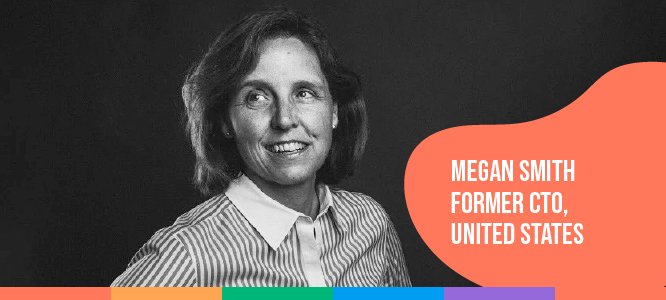
Megan Smith the former CTO of the United States has always been vocal about the need to push inclusion. Most central to her message, however, is the key insight that is most often lost: not only is inclusivity a part of technology’s future, it was also a seminal part of its past. Ada Lovelace, for example, an English woman born in 1812, was the first computer programmer; Katherine G. Johnson, an African-American woman featured in the Oscar-nominated film Hidden Figures, helped put NASA astronauts on the moon.
In 2003, in an interview Megan said, “When you are gay, you come out everyday because everyone assumes you are straight. But you have to be yourself." Smith also hopes to open up the tech industry to more women and encourage girls to pursue a career in it.
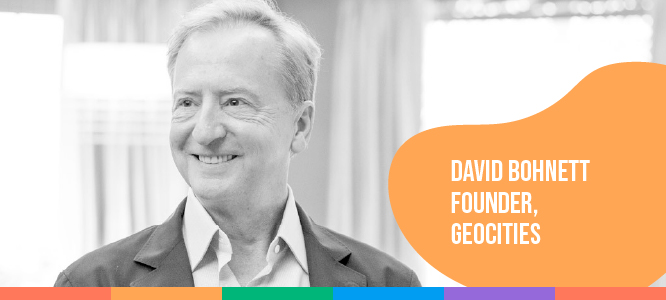
A tech entrepreneur, with his LA-based venture firm Baroda Ventures, founded in 1998, David Bohnett is also the Founder of Geocities, which remains the first largest internet venture built on user-generated content, founded in 1998 and acquired by Yahoo in 1999. Geocities was cited #2 by TechRadar in its list of ‘20 websites that changed the world’ back in 2008.
Bohnett came out to his family post his graduation and worked extensively towards equal rights for gays and lesbians, and towards legalizing same-sex marriage. He founded the David Bohnett Foundation, dedicated to community-building and social activism addressing concerns across a broad spectrum of arts, educational, and civic programs. The first openly bisexual US congressperson Krysten Sinema and the first openly gay mayor of a major US city (Houston), Annise Parker, are both alumnis of the LGBT Leadership Fellows run by his foundation that trains LGBT leaders for local and state governments.
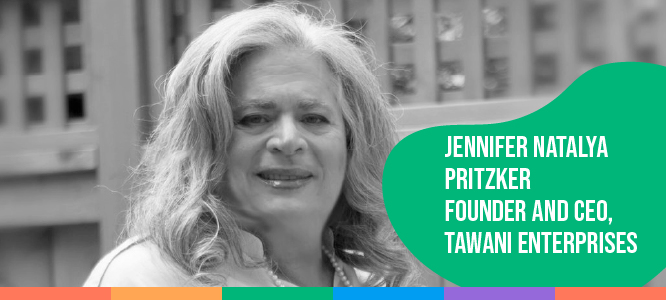
A retired Lieutenant Colonel of the US Army, and Founder and CEO of private wealth management firm Tawani Enterprises, Jennifer Natalya Pritzker, is an American investor, philanthropist, member of the Pritzker family, and the world’s first transgender billionaire. Having retired from the US Army in 2001, Jennifer was promoted to the honorary rank of Colonel in the Illinois Army National Guard.
Formerly known as James Nicholas Pritzker, she legally changed her official name to Jennifer Natalya Pritzker in 2013, identifying herself as a woman for all business and personal undertakings, as per an announcement shared with employees of the Pritzker Military Library and Tawani Enterprises.
Pritzker in 1995 founded the Tawani Foundation aiming "to enhance the awareness and understanding of the importance of the Citizen Soldier; to preserve unique sites of significance to American and military history; to foster health and wellness projects for improved quality of life; and to honor the service of military personnel, past, present and future.”
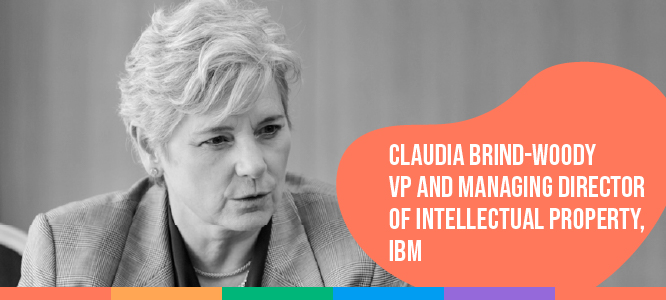
Global Co-Chair for the LGBT Executive Taskforce at IBM, Claudia Brind-Woody is a force of nature to reckon with. In 2019, she was named among the most powerful LGBTQ+ people in tech, in addition to being in Financial Times Top 50 OUTstanding list in 2013, 2014 and 2015, The Guardian’s 100 most influential LGBT people of the year in 2012, and winning the Out & Equal Trailblazer award in 2011, among other accolades.
She came out as a lesbian in the early years of her career and strives to work towards equality at the workplace. In an interview back in 2016 she shared, “What the LGBT+ community wants is to just want it to be ordinary [to be LGBT+] so that you are just seen to be valued on merit and what you bring to the business without someone thinking twice about you being LGBT+....When our employees don't have to think twice about struggling for the same benefits, recognition, or are afraid of being safe, then productivity goes up.”
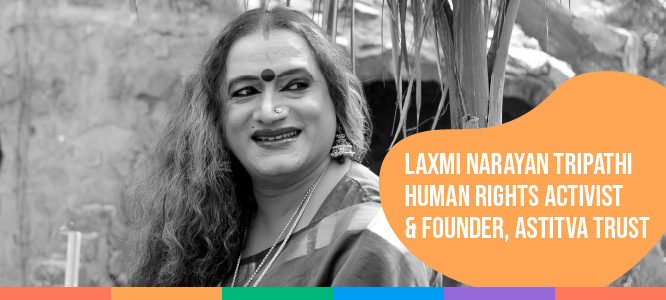
The first transgender individual to represent APAC in the UN task meeting in 2008, representative of APAC yet again at the 20th International AIDS Conference in Melbourne and recipient of the ‘Indian of the Year’ award in 2017, Lakshmi Narayan Tripathi is a transgender activist, and part of the team that led the charge to getting transgender recognized as a third gender in India by the Supreme Court in 2014.
Lakshmi was appointed as the President of the NGO DAI Welfare Society in 2002, the first registered and working organization for eunuchs in South Asia. By 2007 she founded her own organization, Astitiva that works towards the welfare, support and development of sexual minorities.
With the background of an abusive childhood and being bullied for being feminine, she stated in an interview, “I chose not to remember the prejudice," adding, "Rather I think (about) the good things that have happened to me, and be a flamboyant rainbow."
This was just Part I. Don't miss Part II.











